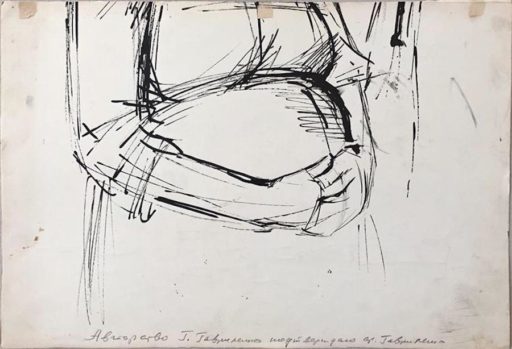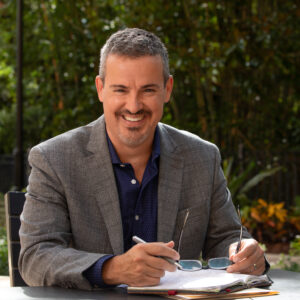Before I see you, when I see you, after I see you: I keep thinking of us years ago, young and doubled in the vanity mirror of the Poconos house the morning after your mother-in-law said: “Forgive me.”
It was quick but true. She meant it. We were with your family’s women, wandering the aisles of a Goodwill in a rustbelt town–what else do you do on a long holiday weekend in the middle of nowhere, in the middle of mountains unknown to me: their reddened haunches broader than the Ozarks of my childhood, their paired rivers gutting wide, frost-silvered valleys.
You stood beside me while I crouched on the floor with a pair of bright red pumps, an oddity remembered only because of what happened next. There was the musty smell of sweat and old soap, the mold’s cool talcum in the shoe bed, the clatter of the bright room when we heard your aunt say to your mother-in-law: “You hurt me.”
You and I were women but still young enough to go to other people’s houses for holidays: our last years as spectators, young and slightly helpful, the dramas of our own marriages and babies just beginning to join the stage. So we went quiet before the two women standing between the metal racks, beside us or just beyond us, I can’t remember. But close enough for us to hear the old offense repeated.
“Forgive me,” your mother-in-law said again, listening, not remembering but believing the sad error of her offense and the years of the other woman’s indignant reserve. “I am so sorry.” Your aunt stared, arms crossed, shocked at a fine paid.
But what I really remember are our faces the next morning in the prism of the bathroom vanity, our selves before the mirror and our selves cast back: young, pretty faces; rich brown hair; a small room deepened by the angles of the mirror’s half-opened wings. And our husbands asleep in our guest rooms, the quiet house just beginning to wake.
But our faces are only the light that wakes the stage and lets me see your arm raise up, your shirt lift as you brush back your hair, your pregnant belly revealed: firm, round, smooth. I loved you so much that your own feat of life made the whole world new for me, too.
Forget the suffering / You caused others. Forget the suffering / Others caused you. / The waters run and run … You walk the earth and you are forgetting.
Strange to think that it would end, all of it: a friendship, a marriage, a whole life mapped out for us—and that we would not see each other again until we met at an appointed time: in a garden where my own stepdaughter, grown and unknown to you, sat hand-stitching in the sun like one of those angels given a territory, a domain, and protective tasks we only understand in signs. We talked—for hours? I don’t recall. I don’t remember what we said.
I was waiting for you to say: “You hurt me” and for me to say: “Forgive me.” Instead you talked about your children and I told you about the saint who looks like you, the one who followed me for years in the black-and-white photos her sister took: a young woman working in a laundry, posed in a garden, standing at a wall in the costume of a warrior. The one whose face looks like the face of the young woman looking at me in the memory’s mirror, the young woman who laughs when I see her pregnant stomach and gasp and turn from her image to her own pretty face and cry out, happy: “It’s true!”
Forget the suffering / You caused others. Forget the suffering / Others caused you. / The waters run and run … You walk the earth and you are forgetting.
Laura Bramon Hassan is a writer and international development practitioner based in Washington, DC. Her writing has appeared in The Best Creative Non-Fiction, Vol. 3 (W.W. Norton), Image, University of Notre Dame’s Church Life Journal, First Things online, Humanum Review, and other outlets.





